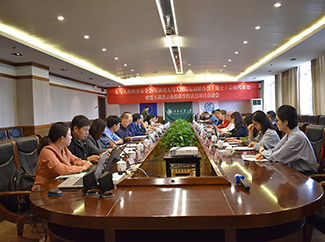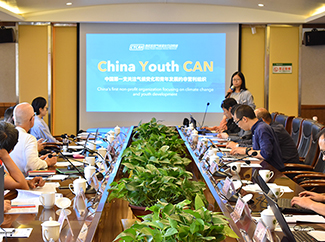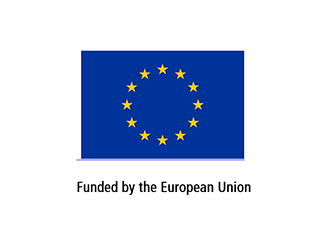consent_cookie
Duración: 1 year
Stores the user's cookie consent state
27-10-2020
On September 15, 2020, the launch of the European Union-Humana People to People’s Yunnan Low-carbon Schools Pilot Project was held in Southwest Forestry University.
Representatives of the following parties attended the meeting: Delegation of the European Union to China, the International Humana People to People Movement (Switzerland) Yunnan Representative Office (HPP YNRO), Southwest Forestry University (SWFU), Yunnan Academy for Science and Technical Information (YASTI)/ Yunnan Clean Development Mechanism Centre (YCDMC), Chinese Youth Climate Action Network (CYCAN), Yunnan Province Environmental Protection and Publicity Education Center (YEPPEC), Yunnan University (YNU), and Panlong District Public Security Bureau NGO Management Office.
At the opening ceremony, Cheng Xiaofang, vice-president of SWFU, Ma Minxiang, President of YASTI, Michael Hermann, Chief representative of HPP YNRO and Action Teamleader, Zheng Xiaowen, Executive director of CYCAN, and Feng Mei, Project Manager, Cooperation Section, Delegation of European Union to China, delivered speeches.
Yunnan Low-carbon Schools Pilot Project not only promotes cooperation between social organizations and the government, but also promotes global cooperation. Through the implementation of the project, we hope that many people consciously work with implementation of global climate solutions, we especially promote the participation of young people, so we together make an important contribution to the creation of “low-carbon campus, green campus”.
At the meeting, various partners of Yunnan Low-carbon Schools Pilot Project made a detailed introduction of their organization, project progress and next steps.
The partners participating in the project have rich practical experience in dealing with climate change, biodiversity, new energy construction, carbon sink, zero carbon, youth development and other fields. At present, we have carried out some project activities around the project targets. In order to promote the better and more sustainable development of the project, the project partners then shared the next work plan.
At the meeting, Feng Mei, Project Manager, Cooperation Section, Delegation of European Union to China, Li Yun, Section chief of the education section of YEPPEC, Geng Yupeng, an expert in ecological civilization education of YNU, and Gu Jianlong, Vice-director of YCDMC, gave speeches in detail, respectively focused on “European Green New Deal, China-EU Cooperation, Environmental Protection and Emission Reduction Vision of EU”, “General Situation of Green Schools in Yunnan Province”, “The Work of the Research Center of Ecological Civilization and Popular Science Education of YNU” and “Climate change and Countermeasures in Yunnan Province”.
By sharing and introducing the background of the Yunnan Low-carbon Schools Pilot Project, we know that the climate environment around us is changing. In 2020, Kunming experienced 20 days with the highest temperature exceeding 30° C, making it the highest ever recorded year.
Meanwhile, in order to actively respond to climate change, government units and social organizations have started from different perspectives and different fields to actively create green campuses, carry out scientific inquiry activities, and continue to promote the construction and development of ecological civilization.
The Yunnan Low-carbon Schools Pilot Project aims to promote the green low-carbon ways and lifestyles within schools, fully mobilize the power of young people to achieve green, low-carbon and sustainable development and transformation, so as to realize the common cause of all human beings--mitigating climate change.
Project introduction:
Co-funded by the European Union and Humana Fundación Pueblo para Pueblo, the Yunnan Low-carbon Schools Pilot Project is implemented in cooperation with the International Humana People to People Movement (Switzerland) Yunnan Representative Office, Yunnan Academy for Science and Technical Information, Southwest Forestry University and Chinese Youth Climate Action Network, with a project cycle from January 1, 2020 to December 31, 2023. The project begins by increasing partners’ awareness and advocacy on climate change mitigation and environmental protection, by raising climate change awareness among 600 schools, 70,000 students and teachers, determine the emission benchmark through basic calculation, and then implement emission reduction work. Use science, technology, innovation and other means to respond to “climate action” to accelerate environmental sustainability and promote the transition from green campuses to low-carbon and carbon-neutral campuses


